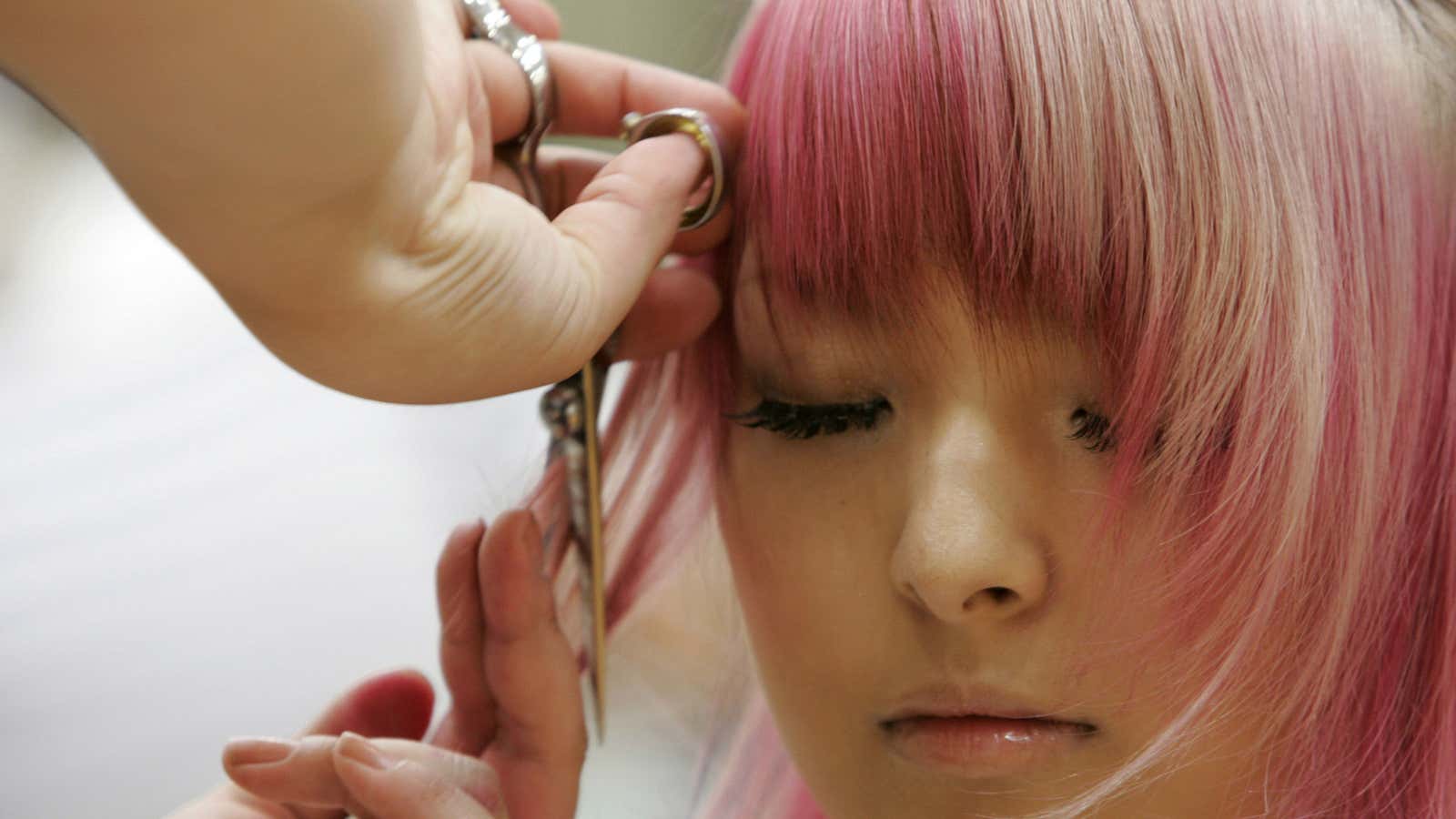Every now and then, a haircut is so much more than routine grooming.
People recovering from trauma—the death of a loved one, the end of a relationship, the loss of a job, or our own failing health—will often cope, in part, by changing their appearance. Sometimes, it’ll be subtle, like a new bob or a little retail therapy. But other times, people will feel the need to drastically change their look by doing things like dyeing their hair fuschia or shaving it off entirely.
It’s completely normal to want to superficially change your appearance. “You can consider it a form of self care,” says Christy Beck, a therapist based in State College, Pennsylvania. “You’re doing something for yourself to make yourself feel better.”
After some kind of major stressor, it can be helpful to give yourself some kind of pick-me-up. Although this doesn’t need to be an outward makeover, haircuts, a new wardrobe, or a new piercing or tattoo, can all be investments in ourselves, a way to make ourselves feel better. Stressors tend to emotionally stop us in our tracks; they channel the energy we’d normally expend on our work, hobbies, or chores, into trying to alleviate some immediate pain. Giving ourselves some TLC can be one way to jumpstart our moods to start moving past whatever upset us.
“Depending on the degree of the trauma, just the self-care is [sometimes] all that’s needed,” says Beck. We may be able to get through moderate stressors, like a breakup or setback at work, by spending some time alone, going out with friends, or treating ourselves to a new look.
But other times, physical changes only serve as a bandaid for a much deeper wound. “For a lot of people it’s a quicker fix. It’s easier to change something that you can do immediately because the other stuff can take longer,” says Beck. Our appearance can serve as an armor of denial when we’re feeling particularly hurt or vulnerable.
In these cases, residual effects of trauma may resurface again and again. Beck says she’s seen several patients who come in for one reason, like an unhealthy pattern in their relationships, and realize that the underlying cause is some kind of suppressed trauma that needs to be dealt with. These patients may have tried to force themselves through a difficult period—perhaps with quick, physical change—but were never able to resolve the tension it caused them on their own.
As one 2013 study points out (paywall) sometimes these patterns of drastic change—especially if they seem extremely out of character—can indirectly alert others that a person is suffering in a major way. When pop star Britney Spears shaved her head 10 years ago, it turned out to be part of a mental breakdown that ultimately led to an involuntary commitment to a stay in a psychiatric ward. Additionally, it’s common for survivors of sexual assault or abuse to develop eating disorders (pdf) as they try cope with the shame they feel about their bodies.
That said, noting these changes can trigger a more meaningful recovery because they actually acknowledge that a person has undergone an extremely difficult event. One of my colleagues, Corinne Purtill, suffered a severe illness a few years ago that kept her in the intensive care unit at a hospital for over a week, and then in recovery at home for months. Although for the most part her health slowly improved, chunks of her hair fell out—which is normal after intense, physical stress.
As she recovered, she tried to take care of herself the way she did before getting sick—particularly with regard to her hair. One day, a friend (who has a chronic illness) kindly suggested it was time she realized it just looked plain old bad. “You’re trying to keep it the way it used to be, but you aren’t that person anymore,” Corinne recalls her friend saying. “Until you change it, every time you look in the mirror you are going to see your illness.”
So, the next day Corinne got a more flattering haircut which, in part, acknowledged that she was physically different. Her illness changed her body in a way she couldn’t control; this time, Corinne was able to control the change herself. “I think with post-trauma makeovers, some changes are necessary to compensate for physical changes—scars, body-shape change, hair loss, etc.—and others for emotional change,” Corinne says.
To be sure, a drastic haircut isn’t a necessary part of recovering from something, and just because someone gets a tattoo or nose ring it doesn’t mean she’s going through anything particularly difficult. Sometimes, we just get bored with our reflections.
However, if you do decide to update your look in response to a breakup or death in the family, it doesn’t mean you’re necessarily putting off coping with deeper issues. It all depends on how you continue to feel afterward. If you’re not at least starting to feel better after a month or so, Beck says, maybe there’s something deeper going on.
